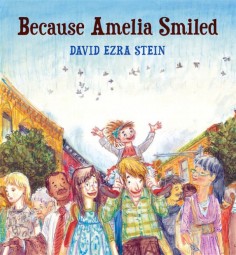Soups: the life and soul
Tuesday, 21 May, 2013, 11:57am
Soups are an important part of any Chinese meal. Being Shanghainese, I grew up with two-ingredient soups that were ready to be served after one hour of boiling: chicken and shiitake mushroom; pork and carrot; tomato and egg. But it is the Cantonese who have elevated soup-making to an art form, with exotic ingredients double-boiled for several hours.
In fact, soup serves as comfort food in many cultures: American chicken noodle soup, Mexican tortilla soup, Irish potato soup, Italian minestrone, and Vietnamese pho. I pulled off my bookshelf a handful of picture books that use the process of making soup to share a moral lesson.
A book toddlers will enjoy is Melissa Iwai's Soup Day, in which a mother and daughter buy vegetables, wash and chop them, then play together while the soup is being cooked. At the end, the father comes home and they share the soup.
My children love Maurice Sendak's Chicken Soup With Rice: A Book of Months. This poem about a little boy who loves chicken soup with rice throughout the year is often requested during reading in our home.
The making of the soup supersedes the eating in Betsy Everitt's Mean Soup, with the last page depicting mother and son standing over the stove, stirring a pot of soup together. After a bad day at school, Horace comes home feeling mean. But rather than scold him his mother invents a silly game to pull her son out of his bad mood.
Together, they take turns screaming into a pot of water on the stove and using the soup in other ways as an outlet for venting frustrations, until finally the soup boils and Horace smiles when his mother tells him they have just made Mean Soup. Everitt cleverly reminds parents that not every tantrum needs to be answered with a tiresome lecture about misbehaviour.
In Maryann Cocca-Leffler's Bravery Soup, Carlin a timid raccoon is tired of being fearful and asks Big Bear, the bravest animal in the forest, how to be brave. He shows the raccoon that bravery is developed from within oneself rather than being a trait that miraculously materialises when bestowed.
A devotee of East Asian culture, Jon J Muth has reinterpreted the classic folk-tale Stone Soup by using three travelling monks to show that sharing is the key to happiness. The monks find a Chinese village of mean-spirited inhabitants, and set out to enlighten them on the rewards of neighbourliness. The visitors put stones into a pot and announced they were making Stone Soup. The villagers were wary but their curiosity was piqued when the monks claimed a little garnish would produce a delicious stone soup. The villagers grew enthusiastic as they joined in the fray, and their perspective changed as they learned the value of teamwork.
In addition to being a soul-warming source of nourishment, soup is a metaphor for collaboration. Books about soups warm the soul, heart and mind.
Annie Ho is the board chairwoman of Bring Me A Book Hong Kong, a charity dedicated to improving children's literacy bringmeabook.org.hk

 The next weekend, we sold raffle tickets at the Dutch Chamber of Commerce annual ball. Our group of young volunteers accosted guests with gap-toothed grins and a ready spiel. They felt so proud of their accomplishment: raising tens of thousands of dollars in just one hour.
The next weekend, we sold raffle tickets at the Dutch Chamber of Commerce annual ball. Our group of young volunteers accosted guests with gap-toothed grins and a ready spiel. They felt so proud of their accomplishment: raising tens of thousands of dollars in just one hour.